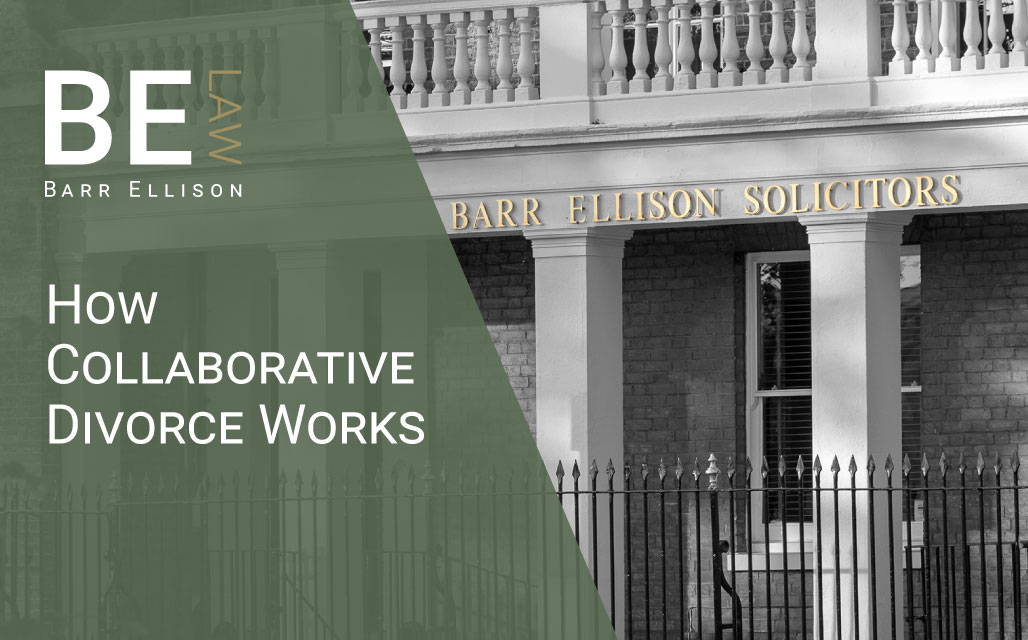Collaborative law is a process where you and your former partner commit to settling matters without going to court. Both of you – along with your lawyers – commit to working together civilly to reach an agreement.
There will be lots of talking! This is a process that minimises correspondence and everything important happens in the room at what are called ‘4-way meetings’. Key features of collaborative law include:
- all negotiations happen in the room with both clients and lawyers (called a 4-way)
- there are few or no letters sent between lawyers
- experts on pensions, financial advice or relationship counselling can be brought into the process and work for the couples, not simply for one of them
- both the lawyers and the clients sign up to a contract confirming the confidential nature of the process, and stipulating the behaviour that is expected at the meetings and beyond
The agenda is set by you
The agenda is set by you both and offers flexibility to achieve an outcome that might well differ from what a court might order. You will be advised throughout on what a court would consider appropriate, even if your respective advisers differ in their views on the likely outcome. Your lawyer can also give advice outside of the 4-way meetings, but they must be prepared to repeat that advice at the 4-way meetings if required. The approach is one of openness and transparency.
Control over timing
Progress is often tailored to the pace of the person moving most slowly, but it can proceed quickly if both parties want and can cope with that. Thus, the 4-way meetings can be held close together and – provided both parties have their financial information available – a conclusion can be reached and made binding within weeks rather than months.
If additional advice or assistance is required from financial advisers, pension actuaries or other experts they can be brought into the process, jointly instructed by both parties, often attending a 4-way meeting so both parties can hear what they advise.
Ultimately your process
Although guided by the lawyers, the onus is on you and your former partner to make the decisions and reach an agreement.
If you agree
If you can reach an agreement, then this needs to be put before a court in order to make it binding. It is important that this be done in order to ensure certainty moving forward for both parties.
If you cannot agree
If the collaborative process breaks down, the two collaborative lawyers will not be able to take any further part in the process and both parties will have to instruct new representation.
The factual information you have gathered in the collaborative law process can be passed to your new lawyers but, although they will be made aware of the discussions as recorded in the minutes of each meeting, those discussions cannot be taken into the court arena.

